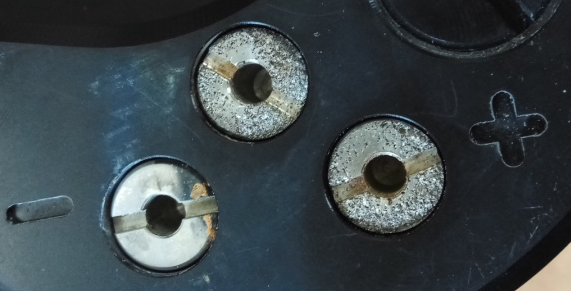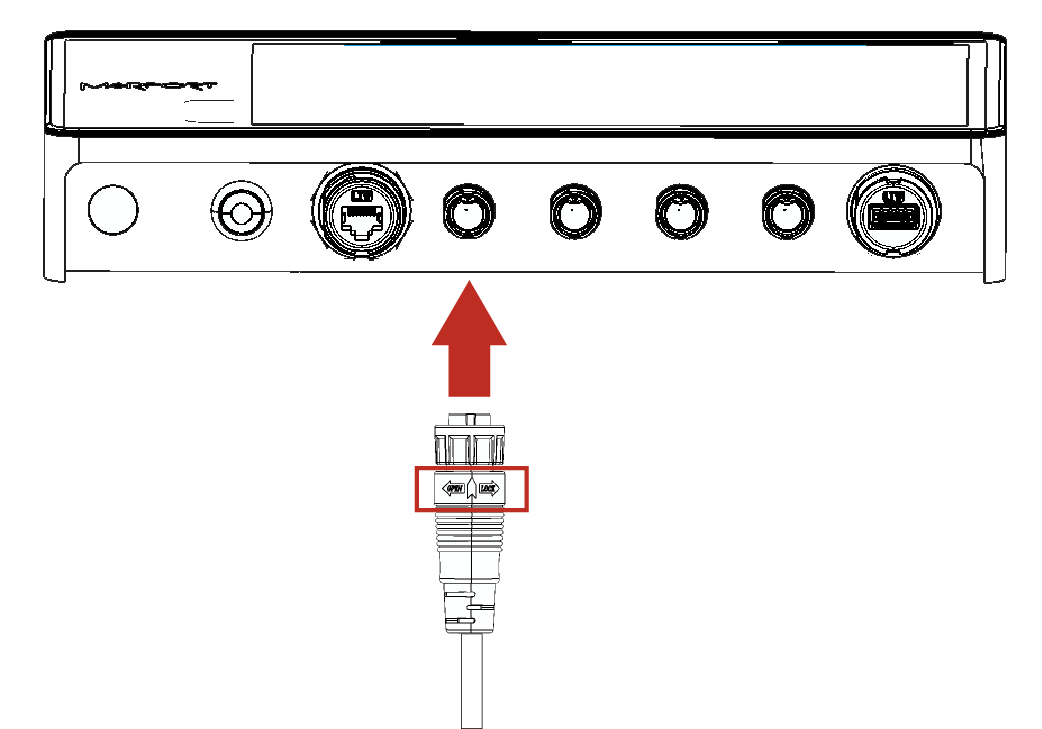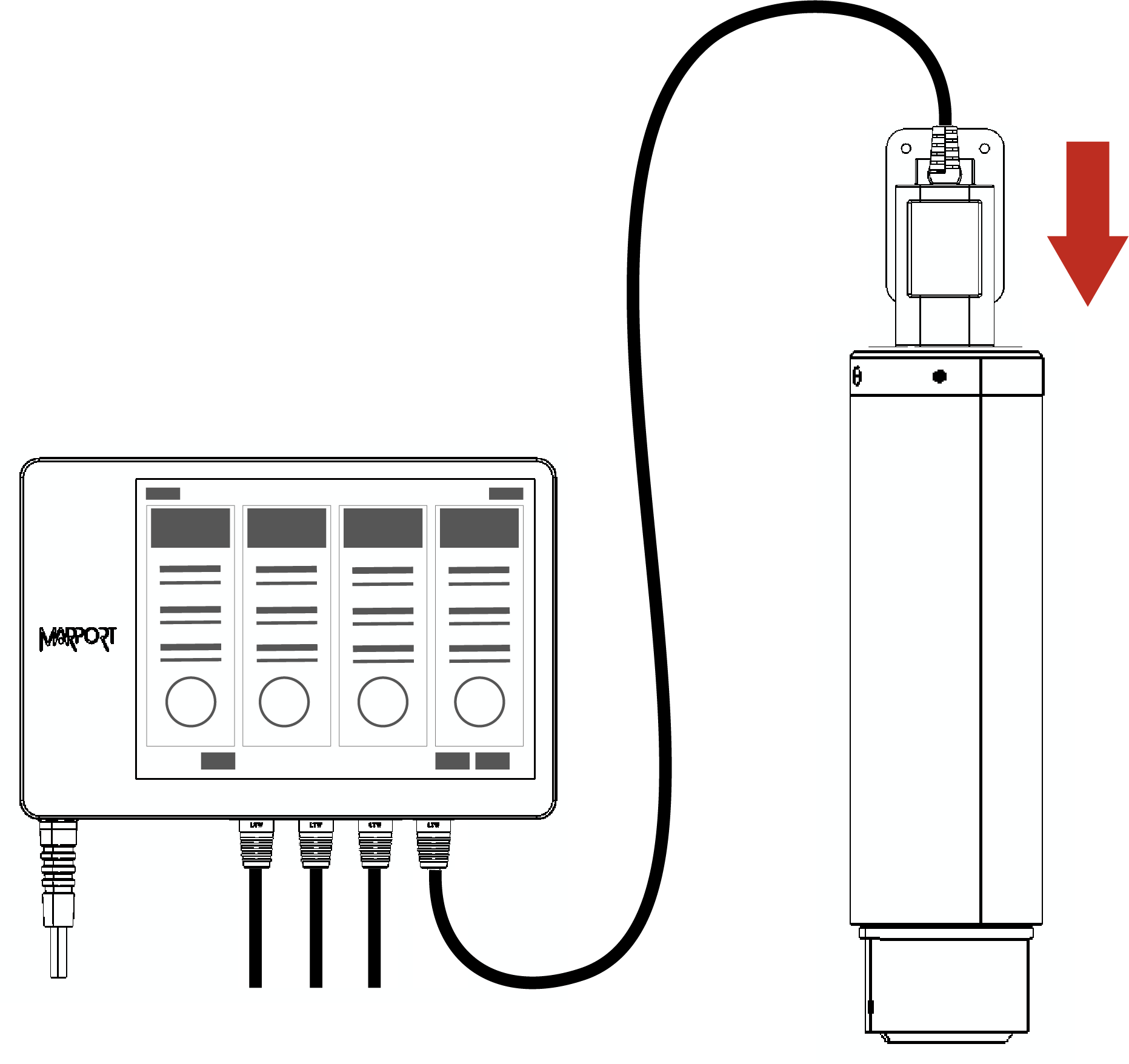Charging the Sensor
Charge the sensor at any battery level with either Marport Dock charger, Basic Sensor Charger or Medusa II Multi-charger.
About this task
The sensor uses lithium-ion batteries. Charge them only with Marport's chargers.
Warning: In case of water ingress in the product, do
not charge it: battery may vent or rupture, causing product or physical
damage.
Important: For Basic/Medusa chargers and Dock products
with serial number before DOC2107XXX: Do not leave the
sensors connected on a charger that is switched off. If the charger is
not connected to the mains voltage, the sensor switches on and this will
drain the battery.
Note: Avoid full discharges and charge the battery whenever
possible, at any battery level. Lithium-ion batteries do not have a charge
memory, so they do not need full discharge cycles.
Procedure
-
Before charging the sensor: wash with fresh water and
dry the sensor. This prevent corrosion of the charging pins.
Note: Check that the charging pins are not damaged. If they are, contact you local Marport dealer for replacement. Below is an example of shoulder bolts damaged because of insufficient maintenance.

- Place the sensor and charger in a dry room like the deck or bridge. The optimal temperature while charging is between 10 and 25 °C.
- Place the sensor away from any installing material (e.g. wet ropes) and fix the sensor with brackets to keep it stable while charging.
- Allow good air circulation around the charger for cooling.
- Connect the 3-pin charging connector to the sensor shoulder bolts.
-
You can apply a small film of electrical contact grease lubricant on
pins.
Tip: To maintain the electrical pins, polish them with fine sandpaper.
- Plug in the charger to a 115-230 Vac 50-60 Hz socket.
-
To charge with a Dock:
-
To charge with a Basic/Medusa Charger:
- If you have the Medusa multi-charger, turn the power switch to the ON position. The power switch lights on. If not, check the AC power cord connection.
- Connect the 3-pin charging connector to the sensor shoulder bolts.
- Look at the LED(s) on the charger box to know the charge status. For the multi-charger, there is a LED for each sensor charging cable. The charge status are:
 Green LED: > 90 %
Green LED: > 90 % Orange LED: from 70 % to 90 %
Orange LED: from 70 % to 90 % Red LED: < 70 %
Red LED: < 70 %
Note: If the sensor is in configuration mode, it will begin to charge after 10 minutes. As long as it is in configuration mode, the charger's LED remains red, whatever the charge level. - Wait for the battery to charge: standard charging cycle takes 6 to 8 hours. A fast charge configuration allows a 70 % charge in 1 hour and full charge in 2.5 hours.
Results
Once charged, the operational life time can be up to approximately 740 hours for a Catch sensor and 19 hours for a Catch Explorer.
The operational life time depends especially on the uplink power of the sensor, but also on the sounding range, uplink frequency and options activated.

